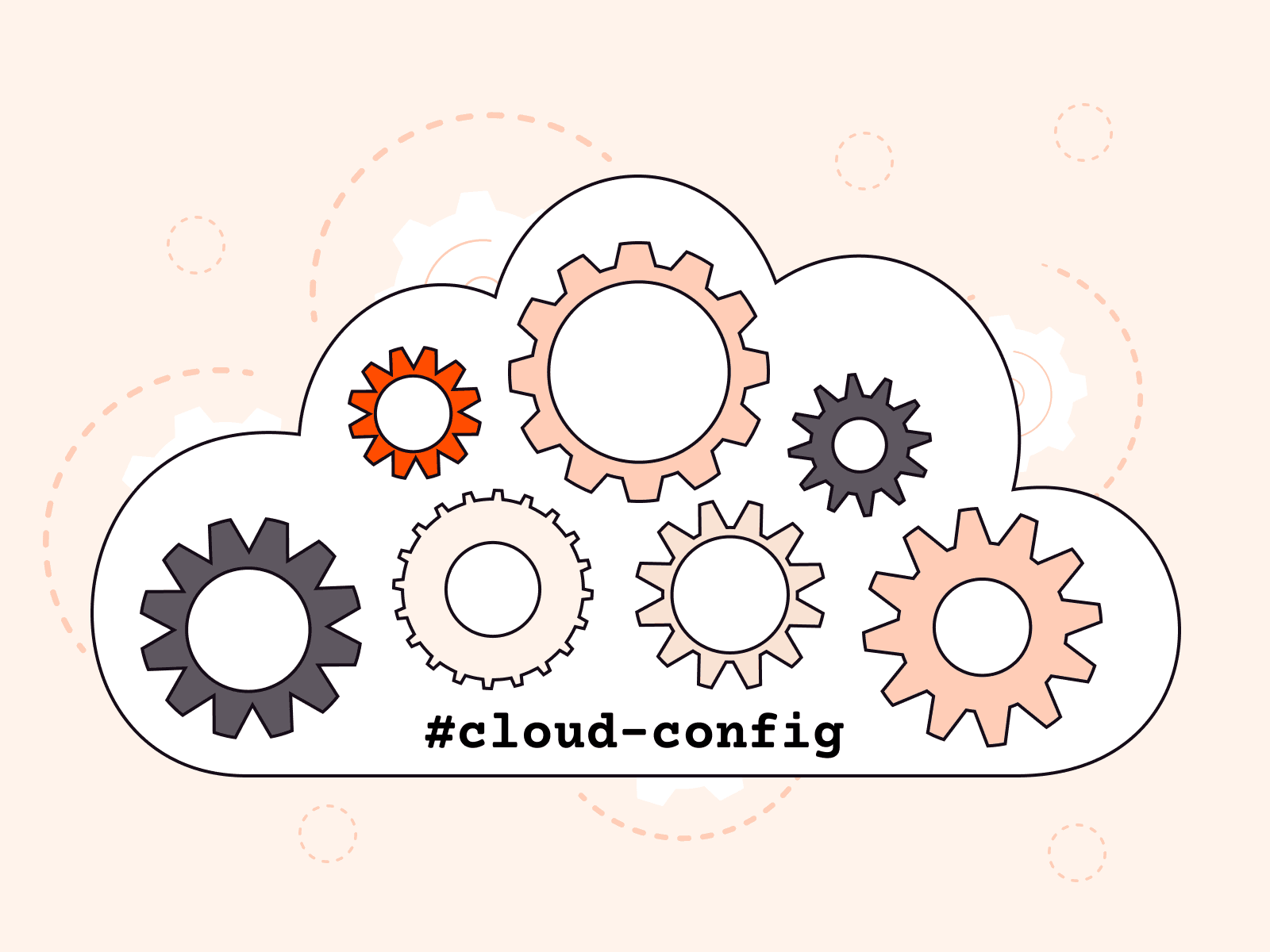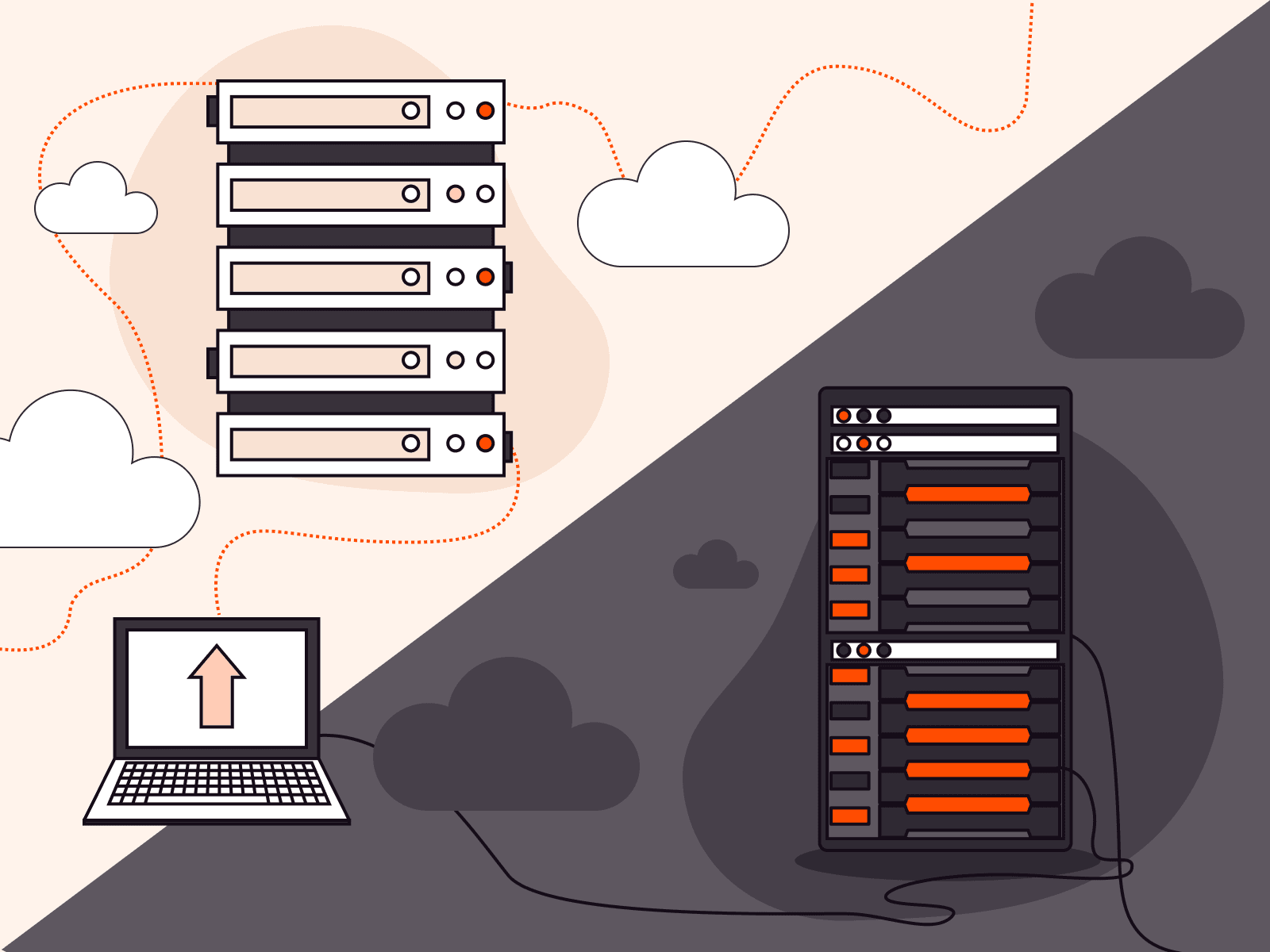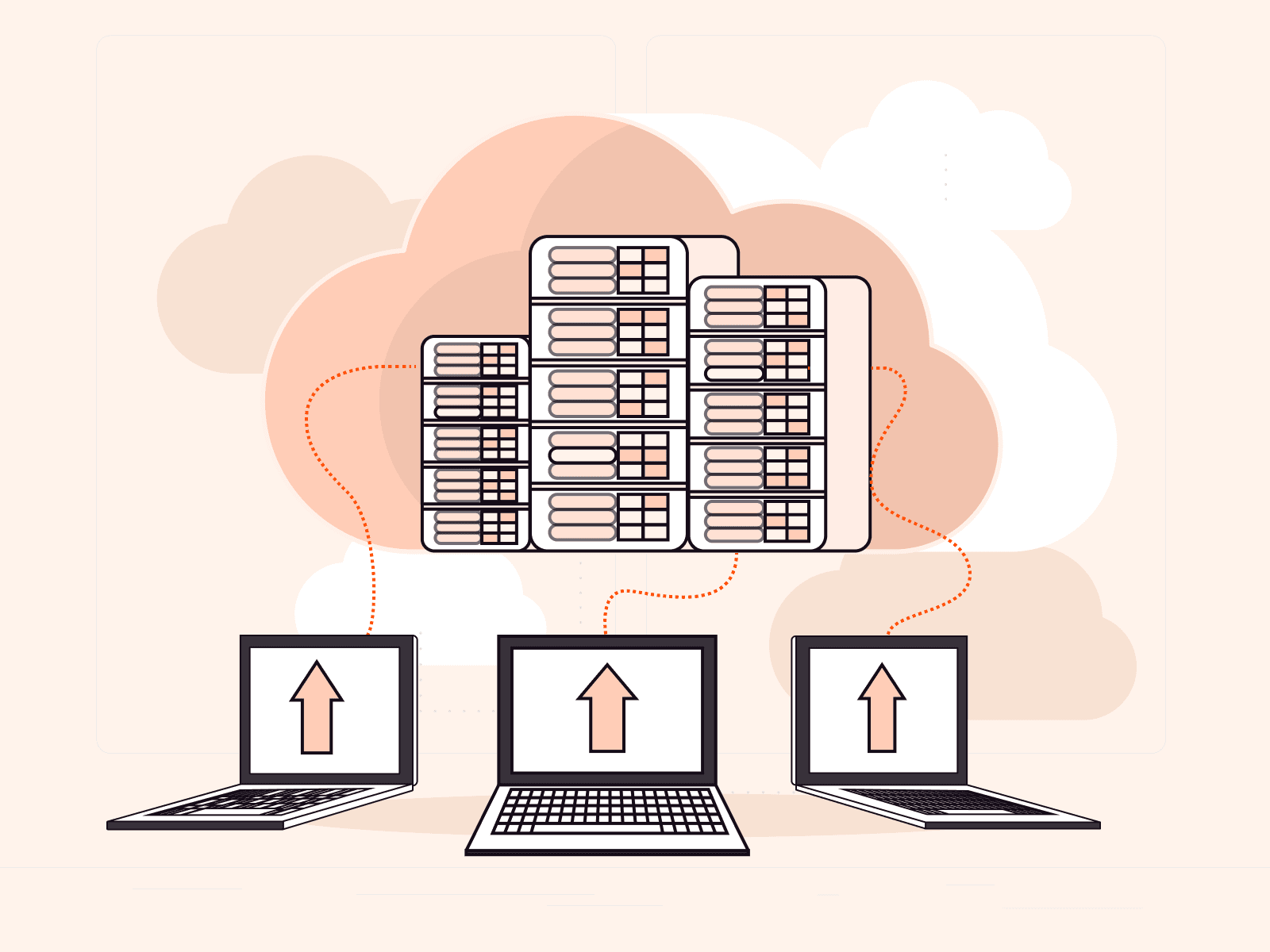What Are Managed Services? | How Do Managed Services Drive Business Growth?
- By Gcore
- July 6, 2023
- 14 min read

Managed services (MS) refers to the outsourcing of tasks remotely to a third-party company known as managed service providers (MSPs.) For instance, when an e-commerce business experiences growth, its IT infrastructure can become more complex to meet the demands, requiring additional expertise and workforce. By having managed services, businesses can leverage this solution to effectively handle their daily operations, saving valuable resources that can be allocated towards expanding the company. By the end of this article, you’ll understand how managed services work and what to consider when selecting an MSP to take your business to greater heights.
What Are Managed Services?
Managed services means that an external provider takes charge of providing and managing specific IT services for clients. These managed services are typically governed by a service-level agreement (SLA,) which outlines the engagement’s scope, performance expectations, and terms.
The concept of managed services emerged due to the growing dependence of businesses on IT infrastructure in the late 1990s. As a result, there was a need for specialized knowledge in managing and supporting these IT systems. Managed service providers (MSPs) filled that gap and continue to do so.
Why Use Managed Services?
As a business owner, working with a managed service model allows you to delegate tasks and responsibilities to experienced professionals. By hiring an MSP, you can benefit from their specialized skills and resources, giving you peace of mind and allowing you to focus on other important aspects of your business, such as innovation. We will discuss the benefits of managed services in depth later in this article.
How to Set Up Managed Services
When providing managed services, the following is a typical set-up process.
- Assessment. The MSP conducts an initial assessment of the client’s IT environment, infrastructure, and requirements. This helps the MSP to understand the current state of the systems and identify areas that need improvement.
- Planning. Based on the assessment, the MSP develops a comprehensive plan tailored to the client’s specific needs. This plan outlines the services to be provided, the scope of work, and the associated costs.
- Implementation. Once the plan is approved, the MSP begins implementing the necessary changes and deploying the required technologies. This may involve setting up hardware and software, configuring networks, and establishing security measures.
- Monitoring and maintenance. After the implementation, the MSP continuously monitors the client’s systems, applications, and networks. Regular maintenance tasks, such as updates, backups, and patches, are performed to ensure optimal performance and security.
- Support and help desk. MSPs provide ongoing technical support to clients, often through a help desk or service desk. They handle user inquiries, troubleshoot problems, and resolve issues remotely or on site, depending on the severity.
- Reporting and analysis. MSPs give clients reports on IT system performance, including uptime, response times, and security incidents. This helps analyze trends, identify areas for improvement, and make strategic recommendations.
The delivery of managed services can happen either remotely, on site, or using a combination of the two, depending on the nature of the services and the client’s requirements. Many routine maintenance and support tasks can be performed remotely, allowing MSPs to efficiently manage multiple clients’ systems from their own facilities. However, certain situations may require on-site visits, such as hardware installations or troubleshooting complex issues that cannot be resolved remotely.
Types of Managed Services
There is no “one size fits all” solution in managed services. It means that there are different types of services available, and they can be customized to meet various needs related to IT infrastructure and operations. Some MSPs offer multiple of these types of services. Here are some common types of managed services available:
- Network management. This involves monitoring and taking care of the client’s network infrastructure, which includes routers, switches, firewalls, and wireless access points. The end result is a stable, secure, and high-performing network.
- Server and infrastructure management. Sever and infrastructure management refers to maintenance and assistance required to manage physical and virtual servers, along with essential infrastructure elements like storage, backups, and disaster recovery solutions.
- Security management. Security management includes tasks such as identifying potential threats, managing vulnerabilities, detecting and preventing intrusions, responding to security incidents, and the overall management of security risks. This helps protect the client’s systems and data from potential dangers and unauthorized access.
- Cloud management. This includes managing and optimizing cloud infrastructure, services, and applications, ensuring scalability, cost efficiency, and reliability in cloud environments such as public, private, or hybrid clouds.
- Application management. Application management involves taking care of and assisting with particular applications or software used by the client, which includes setting them up, adjusting settings, keeping them up to date, and fixing any issues to make sure that all applications are available and work well.
- Desktop and end-user support. This type of managed service provides technical support to end users, including help desk services, device management, software installation and updates, and user training and assistance.
- IT consulting and strategy. Managed service providers may offer IT consulting services to assist clients in developing technology strategies, aligning IT with business goals, and making informed decisions about IT infrastructure, applications, and security.
Here are a few examples of different industries that benefit from using managed services, based on their specific needs and requirements:
| Managed service | Industries that may benefit |
| Network management | Telecommunications, financial services, retail |
| Server and infrastructure management | Healthcare, education, manufacturing |
| Security management | Banking and finance, government, information technology |
| Cloud management | E-commerce, software development, media and entertainment |
| Application management | Healthcare, hospitality, logistics |
| Desktop and end-user support | Education, professional services, non-profit organizations |
| IT consulting and strategy | Real estate, construction, legal services |
A growing variety of services are being offered by MSPs, particularly when it comes to software-based solutions like business applications. One example is the platform-as-a-service (PaaS) model, which is a type of cloud computing that gives developers a platform and environment to create apps. For instance, think of apps like Airbnb or Pinterest. These apps rely on the PaaS model, which is important for making these technologies accessible to more people.
Here are the patterns and growth rates of the different types of managed services that MSPs sell to the market in 2022:

As depicted in the graph, growing businesses need to depend on various managed services to achieve success amidst market challenges and competition. In addition, cybersecurity has gained in importance, prompting companies to allocate additional resources to safeguard their operations.
What Are the Benefits of Managed Services in Business?
Let’s now explore the ways in which managed services benefit businesses. The major benefit of MSPs is that they take care of your specialized technology applications’ day-to-day operations, allowing you and your team to concentrate on boosting revenue or sales. Let’s review some of the less obvious benefits of managed services.
- Saves you money. Managed services help businesses reduce costs by eliminating the need to invest in expensive IT infrastructure, equipment, and personnel. Instead of hiring and training a large number of new employees, businesses can rely on the expertise, efficiency, and resources of the managed service provider (MSP) at a predictable, regular cost.
- Increased productivity. By relying on an MSP to handle IT operations, rather than allocating resources to hire experts, businesses can dedicate more attention to areas of improvement, resulting in enhanced efficiency and productivity. The MSP’s expertise and experience in the field guarantees optimized IT operations and the prompt resolution of any issues that may arise.
- Proactive support and monitoring. Managed services provide proactive monitoring of IT systems, identifying potential issues before they become major problems. This proactive approach minimizes downtime, enhances system reliability, and improves overall business performance.
- Enhanced security. MSPs provide strong security measures to safeguard businesses against cyber threats. These measures include monitoring for potential threats, managing vulnerabilities, and responding to incidents. Regular updates, patches, and data backups are performed to ensure the safety and reliability of business data.
- Scalability and flexibility. Managed services provide your business with the flexibility to scale your IT infrastructure and services based on changing business needs. Whether you are expanding or downsizing your operations, MSPs can quickly adjust resources to align with your requirements.
- Improved focus on core business. By partnering with MSPs, your business can concentrate on its core competencies and strategic goals while having access to skilled experts. MSPs also handle data compliance and auditing, freeing up your valuable time to focus on driving innovation and customer satisfaction. This ultimately leads to business growth without worrying about the complexities of compliance.
Evidently, managed services offer businesses many benefits. Let’s now discuss specific use cases to determine if an MSP is something that you need for your business.
Use Cases of Managed Services
Managed services have a broad range of applications across diverse businesses, industries, and sectors. These services can be customized to meet the unique needs and requirements of your specific business, ensuring that the solution provided is tailored to enhance efficiency, security, and productivity. Let’s look at some common examples of use cases of managed services.
#1 Small and Medium-Sized Businesses (SMBs)
Small and medium-sized businesses (SMBs) can greatly benefit from managed services tailored to their specific needs. One key area where managed services can be advantageous is IT infrastructure management and support. SMBs often lack the in-house resources and expertise to manage their IT systems optimally, which can result in downtime and inefficiencies. By outsourcing IT infrastructure management to a managed services provider, SMBs can ensure reliable and efficient technology operations. The provider takes care of tasks such as server management, network monitoring, and software updates, allowing the SMB to focus on its core business activities.
Here are some examples of SMBs that can benefit from managed services:
- Accounting firm. An MSP can handle the management of their servers, network, and software updates, ensuring that everything runs smoothly while also keeping their data secure and compliant with regulations.
- Marketing agency. An MSP can manage a marketing agency’s cloud servers, data storage, and software deployments, allowing the agency to focus on their marketing campaigns and client services.
- Law firm. Some beneficial managed services include threat monitoring, vulnerability management, and incident response services to protect the law firm’s sensitive client data and ensure compliance with data privacy regulations.
- Healthcare clinic. An MSP can provide remote technical assistance to clinic staff, troubleshoot software and hardware issues, and ensure the smooth functioning of their healthcare information systems.
- Retail store. Monitoring the network infrastructure, setting up firewalls and intrusion detection systems, and performing regular security audits to protect customer data and prevent cyber threats are some helpful managed services for retail stores.
The examples mentioned are just a few instances of the many small and medium-sized businesses (SMBs) that can benefit from using managed services. Services like IT infrastructure management, data backup and recovery, and help desk support are important for SMBs to operate more smoothly in competitive markets. Now, let’s explore another industry that can also benefit from these services: the healthcare industry.
#2 Healthcare Industry
The healthcare industry can greatly benefit from managed services that cater to its unique needs. These services provide crucial support in managing electronic health records, ensuring data security and compliance and maintaining the performance of medical devices and systems. Here are some key use cases of managed services in the healthcare industry:
- Electronic health record (EHR) system management. An MSP provides secure storage and accessibility of patient information and efficient retrieval and updating of medical records.
- Security and compliance services. An MSP ensures the safety of patient data by protecting it from cyber threats. Additionally, they make sure that the healthcare organization follows the necessary regulations, including ensuring patient privacy and confidentiality so that sensitive information remains protected.
- Remote monitoring and maintenance of medical devices and systems. Medical devices are continuously monitored to make sure they are performing at their best. Regular maintenance is performed promptly to avoid any disruptions. This ensures that critical healthcare systems are always available and reliable for use.
There has been an increase of 26.6% in downloads of health applications and prescription apps in the United States in the first half of 2021. This surge in downloads is attributed to users seeking convenient ways to order repeat prescriptions through their mobile devices in the wake of the COVID-19 pandemic. When it comes to health apps, managed services play a vital role in providing advantages such as patient data protection, regulatory compliance, and improved healthcare system performance.
#3 Financial Services
In the financial services industry, it is common for companies to face numerous cybersecurity threats. A security breach can result in significant losses not only for the company but also for the affected clients, as it can lead to financial theft and identity fraud. Making sure that the most up-to-date and powerful IT security measures are in place is a top priority.
Managed services come into picture to provide strong IT security to protect financial assets and personal information. Here are some key benefits of managed services in the financial services sector:
- Network and data security services. Managed services provide robust security measures to safeguard sensitive financial information and prevent unauthorized access. This includes implementing firewalls, intrusion detection systems, and encryption techniques to protect data from cyber threats.
- Compliance management services. Financial institutions need to comply with industry regulations, such as PCI DSS (Payment Card Industry Data Security Standard) and GDPR (General Data Protection Regulation.) Managed services offer compliance management solutions to ensure adherence to these regulations, helping businesses avoid penalties and maintain trust with customers.
- Disaster recovery and business continuity services. Downtime can be costly for financial institutions. Managed services provide disaster recovery and business continuity solutions, including regular data backups and the creation of backup systems, to minimize disruptions and ensure uninterrupted operations even in the event of unexpected incidents.
Online and mobile banking usage is projected to continue to rise. For example, 22 million individuals in Latin America will adopt online banking in 2024 alone, leading to a total user base of 196 million in the region—almost double that of 2020.
By leveraging managed services, financial service providers can focus on their core functions while relying on experts to manage their network security, compliance, and business continuity. This allows them to operate more efficiently, mitigate risks, and maintain the trust of their clients.
#4 Manufacturing Sector
In the manufacturing sector, managed services play a crucial role in improving operations and maximizing production. Companies in this industry often rely on specialized technology systems and processes to meet production demands and maintain competitiveness. Let’s explore some of the specific benefits and use cases of managed services in the manufacturing sector:
- IT infrastructure management. Managed services providers offer expertise in managing and optimizing the IT infrastructure of manufacturing companies. This includes activities such as server management, network monitoring, and software updates, which help to enhance efficiency and minimize any potential downtime that could disrupt operations.
- Monitoring of industrial automation and control systems. As automation becomes increasingly prevalent in manufacturing, the need to monitor and maintain these systems becomes crucial. Managed services providers offer continuous monitoring to identify any issues or anomalies in the automation and control systems. By promptly addressing these issues, they ensure smooth, safe, and uninterrupted operations.
- Data analytics and predictive maintenance. Managed services providers in the manufacturing sector often offer data analytics and predictive maintenance solutions. By analyzing data collected from various equipment and systems, manufacturers can gain valuable insights into equipment performance, identify maintenance needs in advance, and optimize maintenance schedules. This proactive approach helps to reduce unplanned downtime, extend equipment lifespan, and reduce maintenance costs.
- Smart manufacturing. The global smart manufacturing market was valued at 97.6 billion USD in 2022 and is projected to reach 228.3 billion USD by 2027, growing at a compound annual growth rate of 18.5%. Smart manufacturing utilizes advanced technologies to improve traditional manufacturing processes. By adopting managed services, manufacturers can capitalize on this expanding market, increase productivity, minimize downtime, and achieve cost efficiency.
Managed services providers offer expertise and support, allowing manufacturers to focus on their core strengths while relying on secure and dependable IT solutions that contribute to efficiency and competitiveness.
#5 Retail Industry
In the retail industry, managed services offer essential support to streamline operations and enhance customer satisfaction. Whether focused on maintaining a reliable and secure e-commerce platform, optimizing inventory management and supply chain, or providing efficient customer support, managed services play a crucial role in helping retailers thrive in today’s competitive market. Let’s explore some of the specific benefits and use cases of managed services in the retail industry:
- E-commerce platform management and support services. Ensuring a reliable and secure online presence is vital for retailers to attract and retain customers. Managed services can assist in managing and maintaining e-commerce platforms, enabling smooth transactions and protecting sensitive customer data.
- Inventory management and supply chain services. Effective inventory management helps retailers to optimize stock levels, avoid out-of-stock or overstock situations, and minimize costs. Managed services can provide valuable insights and support in streamlining inventory management processes.
- Customer support and help desk services. Providing excellent customer support is essential for building strong customer relationships. Managed services can offer efficient customer support and help desk services, addressing customer inquiries and resolving technical issues promptly.
Global retail e-commerce sales amounted to approximately 5.2 trillion USD in 2021, with expectations of significant growth in the coming years, reaching over 8 trillion USD by 2026. As retailers rely more on online platforms to connect with customers, managed services become crucial in maintaining a reliable and secure online presence. These services assist retailers in managing their e-commerce platforms, ensuring seamless transactions and safeguarding customer data.
What Is a Managed Service Provider (MSP)?
A managed service provider (MSP) is a company that provides managed services to clients, overseeing and remotely managing the IT infrastructure or end-user systems of an organization. MSPs have expertise in offering IT solutions to businesses across different sizes and industries. They act as a trusted partner and take responsibility for managing and supporting their client’s IT infrastructure, systems, and operations.
What Factors Should You Consider When Choosing an MSP?
Choosing the right managed service provider (MSP) is crucial for the success and efficiency of your business operations. With so many options available, it’s important to consider certain factors that will ensure you make an informed decision. In this section, we will explore what to keep in mind when choosing an MSP so you can confidently select an MSP that aligns with your business needs and goals. Here is a checklist to review when choosing an MSP:
- Expertise and specialization. Look for an MSP with experience and expertise in your industry or with your specific technology requirements.
- Service level agreements (SLAs). Evaluate the SLAs offered by the MSP to ensure that they meet your business requirements, including response times and issue resolution procedures.
- Scalability and flexibility. Consider whether the MSP can scale their services to accommodate your business growth and adapt to changing needs.
- Security measures. Assess the MSP’s security protocols, including data protection, vulnerability management, and incident response.
- Reputation and references. Research the MSP’s reputation in the industry and seek references or testimonials from their existing clients.
- Cost and value. Compare the pricing models of different MSPs and evaluate the value they provide in terms of services and support.
- Proactive support and monitoring. Determine how the MSP proactively monitors your systems and provides ongoing support to minimize downtime.
- Communication and reporting. Ensure that clear and transparent communication channels are established. Check that regular reports are provided to track the performance and progress of the MSP’s services.
By considering these important factors and conducting thorough research, you can make a well-informed decision when choosing a managed service provider (MSP) that will effectively meet your business needs and support your growth. When consulting with MSPs directly, ask plenty of questions and ensure that all details are clearly understood and agreed upon by both parties. Investing in technology services can be daunting and sometimes confusing, but as a business owner, it’s crucial to prioritize obtaining the best solutions for your business while also staying within your budget. In the next section, we will explore how Gcore’s managed services can assist you in growing your business.
How Do Gcore Managed Services Help Businesses to Grow?
At Gcore, we provide a wide range of managed services to cater to the unique requirements of businesses in different sectors. In this section, we will discuss our platform-as-a-service (PaaS) offering, which is a type of managed service specifically designed to offer developers a platform for creating and launching applications. With the use of PaaS, your business can depend on the service provider to handle the management and maintenance of the platform, allowing your developers to focus on creating and enhancing applications. Now, let’s explore the key features and benefits of Gcore’s platform-as-a-service (PaaS) offering.
Gcore’s Managed Kubernetes
Managed Kubernetes refers to a service that takes care of the management and operation of Kubernetes clusters. Kubernetes clusters are a collection of servers, also known as nodes, that work together to run applications in a coordinated and efficient manner. Each node in the cluster has its own resources, such as processing power and memory, which can be used to run different parts of your applications. Kubernetes manages these clusters by distributing the workload across the nodes, ensuring that applications run smoothly and can scale easily as needed. It takes care of tasks like deploying, updating, and monitoring applications, making it easier for businesses to manage their software in a reliable and scalable way.
At Gcore, we help you to deploy, manage and scale Kubernetes clusters with ease. Here are some of our service’s advantages that set us apart:
- Bare metal support. A bare metal server is a form of cloud service in which the user rents a physical machine from a provider. This machine is dedicated to the user and not shared with any other tenants. Bare metal support means running containers directly on operating systems without any virtualization layer. This approach enhances speed and efficiency, reducing delays and ensuring optimal performance. It also eliminates disruptions caused by neighboring virtual machines (VMs.)
- No-fee SLA-backed cluster management. In terms of managing production-level clusters, our service provides a guarantee of 99.9% service level agreement (SLA) at no additional cost. This is different from our competitors who either do not offer an SLA or charge a fee of $70 or more per month for it. With our service, you can have peace of mind knowing that your clusters will be managed and maintained with a high level of reliability and uptime, without any additional expenses.
- Great value Gcore instance prices for worker nodes. Our pricing provides excellent value by offering worker nodes at competitive prices that are equivalent to prices for our virtual instances and bare metal servers. This ensures that you get the same level of affordability and cost-effectiveness for your worker nodes as you would for other types of server instances.
- DDoS protection. Your projects are protected from DDoS attacks at the network and transport layers by default.
- GPU worker nodes support. Gcore’s Managed Kubernetes clusters provide support for GPU worker nodes, enabling the execution of GPU-intensive tasks such as machine learning, video processing, and gaming.
- 24/7 technical support. We offer rapid real-time assistance and quality technical service around the clock.
Learn more about the advantages of Gcore Managed Kubernetes.
Additional Gcore PaaS Offerings
Aside from Gcore Managed Kubernetes, we offer additional PaaS: Managed Logging for collecting and storing logs, function-as-a-service (FaaS) for running code as function without creating and maintaining virtual machines, and Cloud App Marketplace, that gives you access to ready-made systems and applied services.
Here’s a table showcasing some real-life use cases of Gcore platform-as-a-service (PaaS) in different industries.
| Industry | Use Case |
| E-commerce | Building and managing online marketplaces |
| Healthcare | Developing telemedicine applications |
| Financial services | Building secure and scalable banking apps |
| Education | Creating online learning platforms |
| Entertainment | Developing media streaming applications |
| Manufacturing | Optimizing supply chain management systems |
| Retail | Building and managing e-commerce platforms |
| Travel and hospitality | Creating reservation and booking systems |
Cost Comparison: On-Premises, IaaS, Gcore Managed Services
Additionally, we would like to present a cost comparison between maintaining your infrastructure on-premises, as infrastructure-as-a-service (IaaS,) and using Gcore’s Managed Services/PaaS.

We offer infrastructure cost savings, which means reducing your capital expenses and saving time on infrastructure design. By choosing Gcore as your managed service provider (MSP,) your business can effortlessly scale and prioritize product development while we streamline your business growth.
Conclusion
Managed services are when a business hires an outside company to manage and support their IT infrastructure. This allows the business to focus on what they do best, leaving the technical workloads to experts. The benefits of managed services include enhanced efficiency and security, reduced downtime, and financial savings. Choosing the right managed service provider is crucial as technology becomes more sophisticated and expensive.
At Gcore, our managed services such as Managed Kubernetes are designed to facilitate business growth. By trusting us with your IT infrastructure, your business can benefit from our expertise and resources so you can concentrate on your business primary goals and achieve sustainable growth.
If you have questions, reach out to our dedicated support team and we’ll be glad to assist.
Related articles
Subscribe to our newsletter
Get the latest industry trends, exclusive insights, and Gcore updates delivered straight to your inbox.





